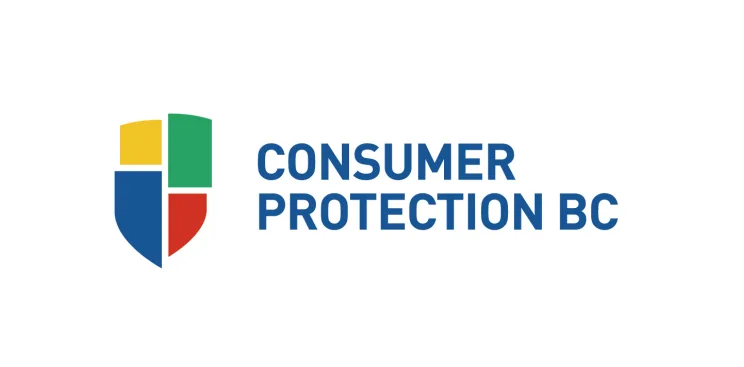Online shopping

It’s easier than ever to do all of your shopping online (even for toilet paper). Like any purchase, online shopping creates a contract, and you have rights.
What you should know
When you buy something online (or by phone), you can’t inspect the goods beforehand. So special rules apply. The seller has to tell you:
their name, address, and phone number — and their email address if you’re buying online
detailed information about the product
the total price you’ll pay, with a breakdown of taxes and other charges
the currency you must pay in
an explanation of how the goods will be shipped to you
the seller’s cancellation and return policy
For it to be legally binding, the seller must give you a copy of the contract — a detailed receipt, basically — within 15 days of the sale.
For online shopping, the seller must make the contract available to you in a way that lets you keep and print the information, like in your online account. The seller may also send you a copy of the contract by email.
If the contract doesn’t include all the information the seller is required to give you, you can walk away. You can cancel up to seven days after receiving the contract.
If you don’t get a copy of the contract within 15 days of the sale, you can cancel. In this case, you have up to 30 days after placing your order to cancel the contract.
If you don’t receive what you ordered within 30 days of the estimated delivery date, you can cancel the contract any time before the goods or services are delivered.
No estimated delivery date? Then you can cancel within 30 days of ordering.
Seems like every time you buy something online, ads from the same company start appearing on your desktop. Canada has laws against spam, but the sellers may actually be allowed to do this.
There’s an exemption in the spam laws for “existing customers.” Since you’ve bought something, that means you have a business relationship with the online seller. They use this cozy status as a reason to send you ads.
You can always opt out — ads from businesses must have an “unsubscribe” link. (Hint: It’s always buried at the bottom.) And stay on guard for emails that seem to come from an online business that you know, but are really spam. Never download suspicious files or respond to suspicious messages.
Take action
Savvy online shoppers abide by a handful of (non-biblical) commandments. Hot tips coming up.
Before you buy that sleek-looking dehumidifier for your basement, make sure it’s the right one for you. Read reviews. Make sure it’ll handle your needs but isn’t more than you need. A little homework on the front end may save you trouble later.
If you want to cancel because you never got your contract or the goods didn’t arrive in time, reach out to the seller directly.
Be firm but polite. Explain why you’re cancelling. You may have to speak to a manager. Make sure you get confirmation in writing that they’ve accepted the cancellation and the amount they’re going to refund you (if you’ve pre-paid).
If you decide to cancel a contract for something you bought online, notify the seller in writing. You can use a notice of cancellation form provided by Consumer Protection BC: they have forms for if the seller didn’t provide the required info, didn’t provide a copy of the contract, or didn’t deliver within the required time.
The seller has 15 days to give you a refund. If nothing has happened by then, give them a call. Confirm they got your letter. Demand your refund.
Still no refund from the seller? Ask your credit card provider to reverse the charge. The credit card provider must do so — plus refund any associated interest — within two complete billing cycles or 90 days, whichever is earlier.
Contact your credit card provider with:
the seller’s name
the date of the purchase
the amount charged to the credit card
a description of the goods or services
the reason for cancellation
the date and method of cancellation
a copy of your notice of cancellation that you sent to the company
You can also tell the whole sorry tale on social media. Be accurate. Be truthful. Not being truthful may expose you to a lawsuit. You may end up getting what you want. Companies are eager to protect their reputations.
Who can help
Still stuck waiting for that pair of shoes you bought but that never arrived? If you need help with that or other consumer-related issues, consider getting in touch with these agencies.

Consumer Protection BC
Assistance relating to certain types of consumer problems and contracts in BC.

Better Business Bureau
They may not solve your problem, but reporting can help others avoid problems.
Getting legal advice can help you decide on the best next step. Or if you're up for a self-help approach, the Civil Resolution Tribunal is a great option.

Lawyer Referral Service
Helps you connect with a lawyer for a complimentary 15-minute consult to see if you want to hire them.

Access Pro Bono's Free Legal Advice
Volunteer lawyers provide 30 minutes of free legal advice to people with low or modest income.

Civil Resolution Tribunal
Resolve disputes of less than $5,000 (and some other types of disputes) online 24/7 and without the need for a lawyer.
This information from People’s Law School explains in a general way the law that applies in British Columbia, Canada. The information is not intended as legal advice. See our disclaimer.
Related
On Dial-A-Law
Dial-A-Law has more information on Making a purchase in the section on Consumer.
